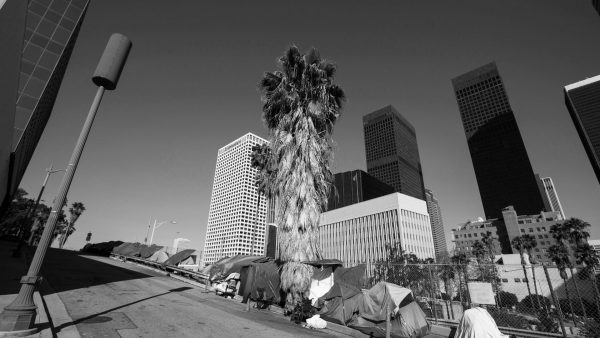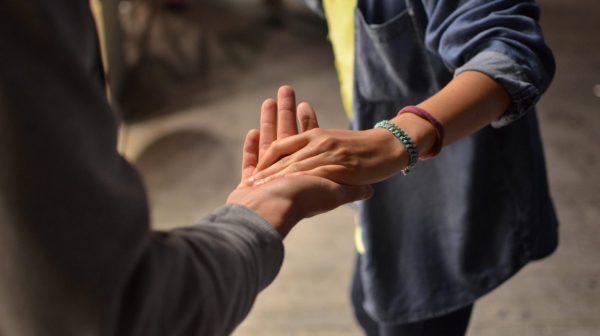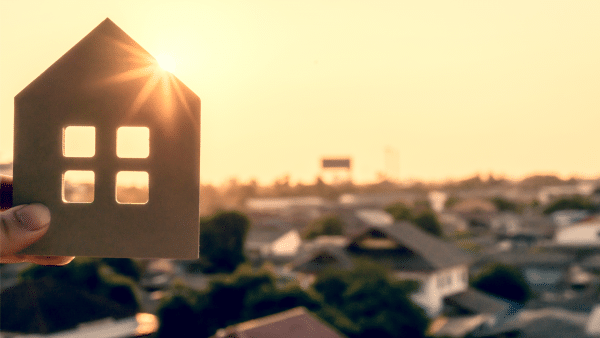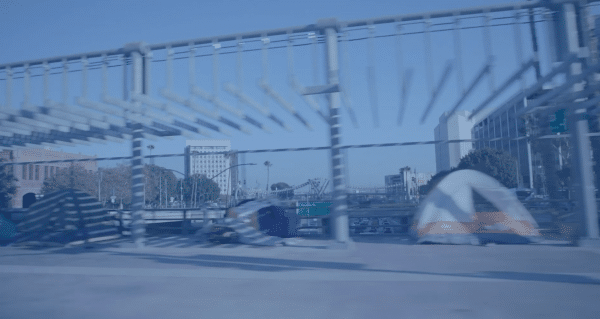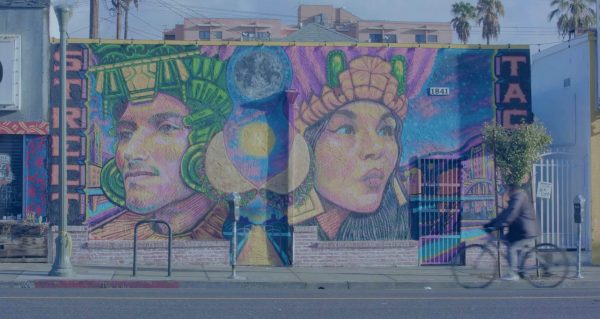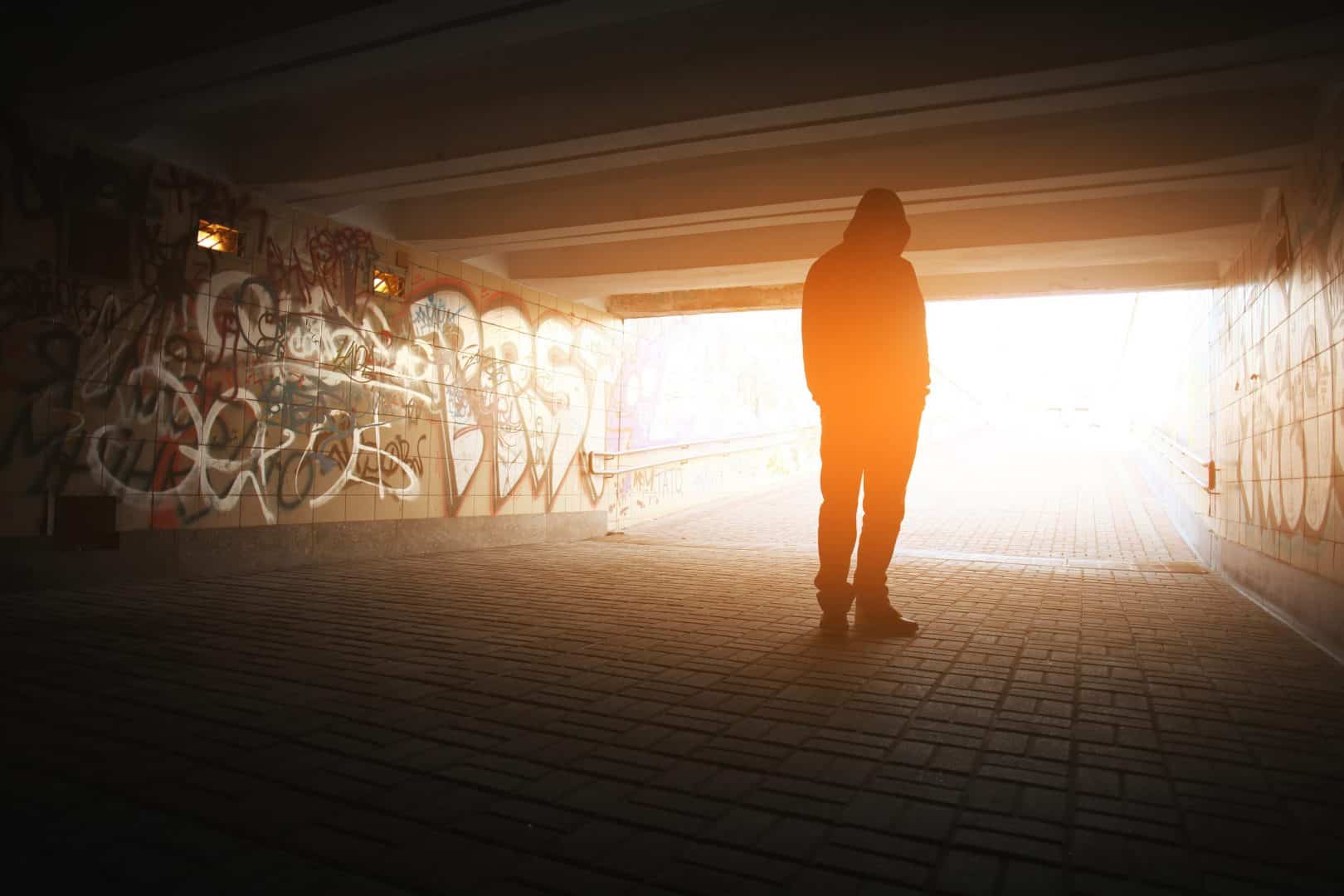Inner City Law Center Condemns Supreme Court’s Decision in Grants Pass v. Johnson, Allowing Criminalization of Homelessness
By allowing the City of Grants Pass to criminalize homelessness, the Supreme Court has taken a large step backward on the issue.
Los Angeles, CA (June 28, 2024) – Earlier today, the US Supreme Court released a decision on the contentious Grants Pass v. Johnson case, ruling that laws punishing people for sitting or sleeping outdoors on public property when they have nowhere else to go do not violate the Eighth Amendment’s prohibition against cruel and unusual punishment.
“This is an unfortunate and counterproductive decision that reflects an increasingly hostile and punitive approach toward people experiencing homelessness” said Inner City Law Center CEO Adam Murray, who has already weighed in on the case in an in-depth op-ed in the Los Angeles Daily Journal. “We need compassionate and effective solutions to homelessness. The criminalization and displacement that the Supreme Court approved today is not a solution; it is a moral failure.”
The legal argument in the Grants Pass case is not new; since 2006, the Ninth Circuit Court of Appeals has consistently ruled that the Eighth Amendment’s prohibition on “cruel and unusual punishment” means cities can not prosecute homeless individuals for “involuntarily sitting, lying, and sleeping in public” when there are not alternative places, such as shelters, where they could lawfully sleep. Today the Supreme Court overturns this line of cases and sets a new precedent — one that signals an increasingly draconian approach to homelessness.
“This is a historically shameful decision that punishes people living in poverty. The Supreme Court has ruled in favor of the City of Grants Pass rather than the 250,000 struggling Americans who sleep outside on any given night. The Court’s decision encourages a politics of hatred rather than protecting the most vulnerable among us,” said Inner City Law Center’s Equal Justice Works Fellow Ishvaku Vashishtha, who authored Inner City Law Center’s amicus brief on the issue. “The Court’s decision empowers cities and states to criminalize people who have no choice but to sleep outdoors. This decision allows cities to make it a crime to be too poor to afford housing in America.”
Criminalization is the most expensive and least effective way of addressing homelessness. “The Supreme Court decision validates increasing attempts to criminalize homelessness, even as research has consistently found that criminalizing homeless folks does nothing to reduce homelessness. Only housing ends homelessness,” said Mahdi Manji, Inner City Law Center’s Director of Public Policy. See here, here, and here, for just a few of the many examples of such research.
As Justice Sotomayor so eloquently stated during oral argument: “Where do we put them if every city, every village, every town lacks compassion and passes a law identical to this? Where are they supposed to sleep?”
“Regardless of what the Supreme Court says, Inner City Law Center will continue to actively oppose efforts to punish people on the streets for their homelessness,” said Murray. “While this decision will surely embolden efforts around the country to criminalize homelessness, we are encouraged by the position that Mayor Karen Bass has taken to ensure every person experiencing homelessness has a safe place to sleep. Despite the Supreme Court’s decision, we remain hopeful that Los Angeles will repeal current policies that punish the involuntary sleeping on public sidewalks that is an unavoidable consequence of being human and homeless in Los Angeles.”
“As we move forward from this unfortunate setback, we must come together, mobilize and urge lawmakers at all levels of government to emphatically reject criminalization and instead embrace compassionate, data-driven strategies to end homelessness. It’s long past time for bold legislative action that affirms human rights and advances economic justice. This is not merely a legal and policy battle, but it is a moral imperative,” said Vashishtha.
Background
On March 28, 2013, the Grants Pass City Council hosted a community roundtable to generate possible solutions to the community’s rising “vagrancy problems”. Grants Pass Council President said, “the point is to make it uncomfortable enough for them in our city so they will want to move on down the road.”
In 2018, The Oregon Law Center filed a class action lawsuit in the US District Court for the District of Oregon, citing the 2013 City Council meeting as proof that the city’s laws against sitting, sleeping, and lying down in public were enacted to specifically persecute people experiencing homelessness. In 2020, the district court injunction halted Grants Pass from enforcing these laws.
When the Supreme Court agreed to hear the case, a coalition of legal aid organizations, including Inner City Law Center, submitted an amicus brief advancing the argument that the criminalization of homelessness violates the Eighth Amendment.
###
About Inner City Law Center
Inner City Law Center is a nonprofit, poverty-law firm headquartered in skid row, working to end the homelessness crisis by providing free legal services to the most vulnerable residents of Los Angeles.
Inner City Law Center’s staff of more than 130 (including 70 lawyers), together with hundreds of volunteers, fight for people facing eviction, struggling with landlord harassment, fighting to secure their veteran or disability benefits or standing up to slum housing conditions.
Contact: Jacqueline Burbank, Communications Manager, jburbank@innercitylaw.org or (213) 947-7902
